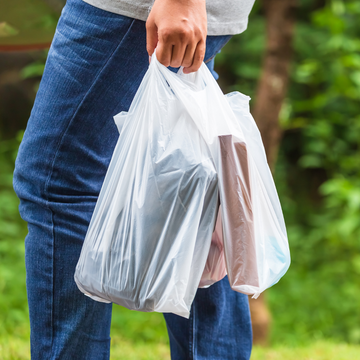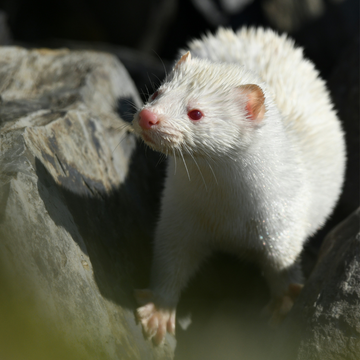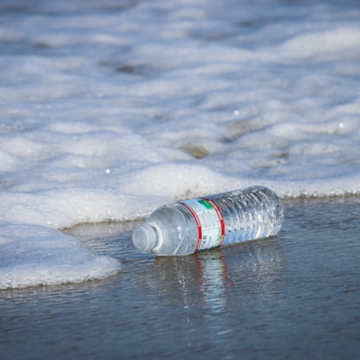Single-use plastic bags are everywhere, serving as a convenient way to transport our groceries and other goods. However, beneath their apparent utility lies a hidden cost to our environment. In this blog, we will delve into the darker side of these everyday items and reveal ten eye-opening facts about the harm they cause. We will also explore eco-friendly alternatives and provide answers to some frequently asked questions.
Fact 1: They're Everywhere

Single-use plastic bags are alarmingly ubiquitous. The world produces an astounding number of these bags each year. In the United States alone, it's estimated that over 100 billion plastic bags are used annually. This staggering quantity contributes to a colossal environmental problem.
Fact 2: Short Lifespan
Despite their widespread use, single-use plastic bags have an incredibly short lifespan. On average, a plastic bag is used for just 12 minutes before being discarded. This brief utility contrasts sharply with the hundreds of years it takes for these bags to break down in the environment.
Fact 3: Non-Biodegradable
Plastic bags are primarily made from petroleum-based materials. This composition means they don't biodegrade, which sets them apart from organic materials like paper. Instead, they break down into smaller pieces over time, known as microplastics. These microplastics pose a significant threat to marine life and ecosystems when they enter water bodies.
Fact 4: Wildlife Threat

The environmental consequences of single-use plastic bags extend to wildlife. Marine animals, in particular, are at risk because they often mistake plastic bags for food. When ingested, these bags can cause severe harm or even death. This makes plastic bags one of the leading causes of marine pollution and the decline of marine species.
Fact 5: Litter Problem
Plastic bags are notorious for littering our streets, parks, and water bodies. Their lightweight nature allows them to be carried by the wind, and they end up in trees, waterways, and urban landscapes. Not only do they look unsightly, but they also require resources and effort to clean up, further straining our environment and finances.
Fact 6: Resource-Intensive Production
The production of plastic bags is resource-intensive. It consumes significant amounts of oil, energy, and water. These valuable resources could be better utilized in more sustainable and eco-friendly ways.
Fact 7: Slow Decomposition
Plastic bags take an extraordinarily long time to decompose in the environment. It can take hundreds of years for them to break down, during which time they continue to harm ecosystems and wildlife. This long-lasting impact is in stark contrast to their brief use in our lives.
Fact 8: Carbon Footprint
The carbon footprint of plastic bags is another concerning aspect of their production and disposal. The extraction of petroleum and the manufacturing process contribute to carbon emissions and, subsequently, climate change. Transitioning to more eco-friendly options can help mitigate this impact and support efforts to combat global warming.
Fact 9: Limited Recycling
While some plastic bags can be recycled, the recycling rate is relatively low. Many end up in landfills or are incinerated, releasing harmful pollutants into the air. This underlines the importance of reducing the use of plastic bags in the first place, as recycling alone cannot solve the problem.
Fact 10: Alternative Solutions

The good news is that there are eco-friendly alternatives to single-use plastic bags. Reusable bags made from materials such as cloth, jute, paper, or even sturdier plastics designed for multiple uses offer a sustainable alternative. Making the switch to these alternatives, such as our vegan bags made from recycled materials, can significantly reduce the environmental impact of plastic bags.
Conclusion
In conclusion, the dark side of single-use plastic bags is not to be underestimated. Despite their convenience, these bags wreak havoc on our environment, from polluting oceans and harming wildlife to contributing to climate change. It's imperative that we take action and consider the consequences of our choices.
By opting for reusable and eco-friendly alternatives, we can make a positive change in our daily lives. Bringing your own reusable bags when shopping, avoiding single-use plastic bags, and raising awareness about their environmental impact are all steps in the right direction. These small changes can collectively make a significant difference in reducing the harmful effects of single-use plastic bags and preserving our planet for future generations.
FAQs
Are plastic bags recyclable?
Yes, some plastic bags can be recycled, but the recycling rate is low. It's best to reduce their use and opt for alternatives like reusable bags to reduce the overall environmental impact.
What can I do to reduce my plastic bag usage?
You can make a difference by bringing your own reusable bags when shopping, avoiding single-use plastic bags, and encouraging others to do the same. Small actions can have a big impact.
What are some eco-friendly alternatives to plastic bags?
Eco-friendly alternatives include reusable bags made from materials like cloth, jute, paper, or even sturdier plastics designed for multiple uses. These options are more sustainable and can help mitigate the harm caused by single-use plastic bags.







